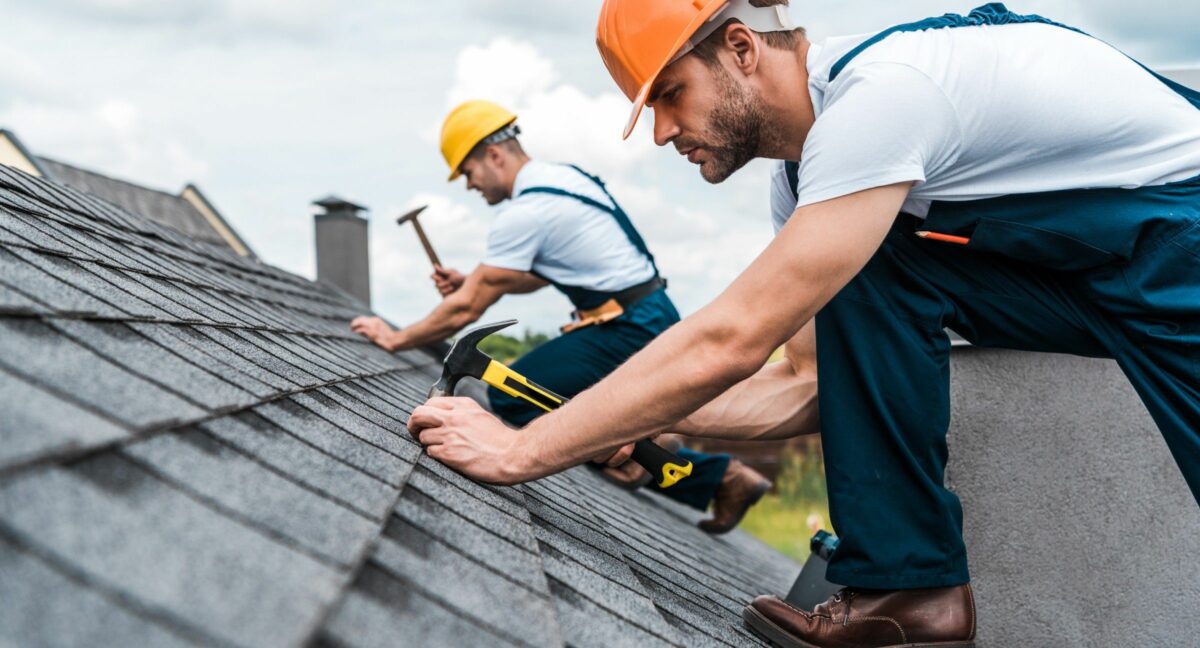Mon-Sat: 7:00am to 6:00pm

Are Roof Repairs Tax Deductible?
If the roof on your home or business needs repair, you might be dreading the expense it will entail. The roof repair costs can add up fast, and you will need to consider the possibility that there’s even more damage than you can see.
Being able to deduct the cost of roof repairs from your taxes would undoubtedly make things easier. However, the IRS’s guidelines on deductions can be hard to decipher. So, are commercial roof repairs tax deductible? Are residential roof repairs? Let’s take a look.
Are Commercial Roof Repairs Tax Deductible?
Commercial roof repairs and replacements have not always been tax-deductible. However, as of 2022, section 179 of the tax code allows business owners to deduct certain business purchases the year those purchases are “put into service.” More specifically, if you opt to replace your company’s entire roof, you can deduct the cost of that roof up to $1,080,000.
But what if you don’t need to replace the entire roof? Fortunately, the IRS allows business owners to completely write off ordinary expenses they run into while operating the business. This means that if you pay for repairs to the roof of your business, you can write off the cost.
What About Residential Roof Repairs?
Being able to write off the cost of repairing your business’s roof can make a significant difference when tax season rolls around. So naturally, you might wonder if you can deduct those expenses if your home also needs roof repairs.
Regrettably, the IRS doesn’t allow you to deduct the cost of home roof repairs from your taxes. However, if you replace your roof entirely, you may qualify for a different type of tax write-off. To understand the distinction, you must understand how the IRS distinguishes between repairs and home improvements.
Tax Implications of Repairing vs. Replacing a Residential Roof
Home improvements, or major projects that can potentially increase your home’s value, can’t be deducted from your income tax. They might save you money on capital gains tax if you decide to sell.
If you profit from the sale of your home, you may be charged a capital gains tax. However, suppose that the home improvements you invested in have increased your home’s value and, in turn, the profit you made when selling it. In that case, you can typically deduct the costs of those improvements from any capital gains tax you owe.
Unfortunately, most routine repairs don’t count as home improvements. Here are a few of the most common projects the IRS does classify as home improvements:
- Replacing (not repairing) your roof
- Adding a patio or other backyard hardscape
- Building an addition
- Upgrading your windows
- Renovating your bathroom or kitchen
The IRS views most home repairs as simple routine maintenance. They aren’t meant to increase value but to keep the home safe and livable. Here are some examples of what the IRS sees as repairs:
- Repairing a damaged portion of a roof
- Replacing some of the roof’s shingles or tiles
- Remediating mold
- Installing new pipes
- Replacing appliances
- Repainting the interior
If you’re unsure whether something counts as a repair or a home improvement, it’s a good idea to ask your tax professional.
Need to Give Your Roof a Facelift?
Next time you need a San Diego residential roofing company near you, give us a call. See why we’re a trusted option for all things roofing throughout the area.
Share this Post


